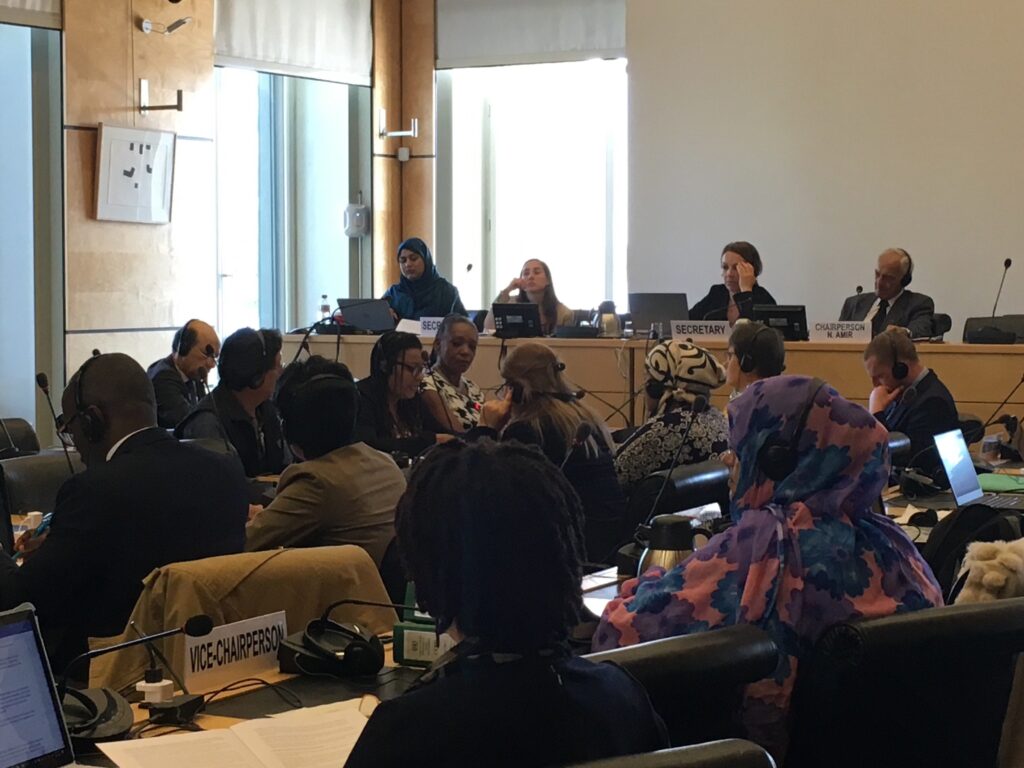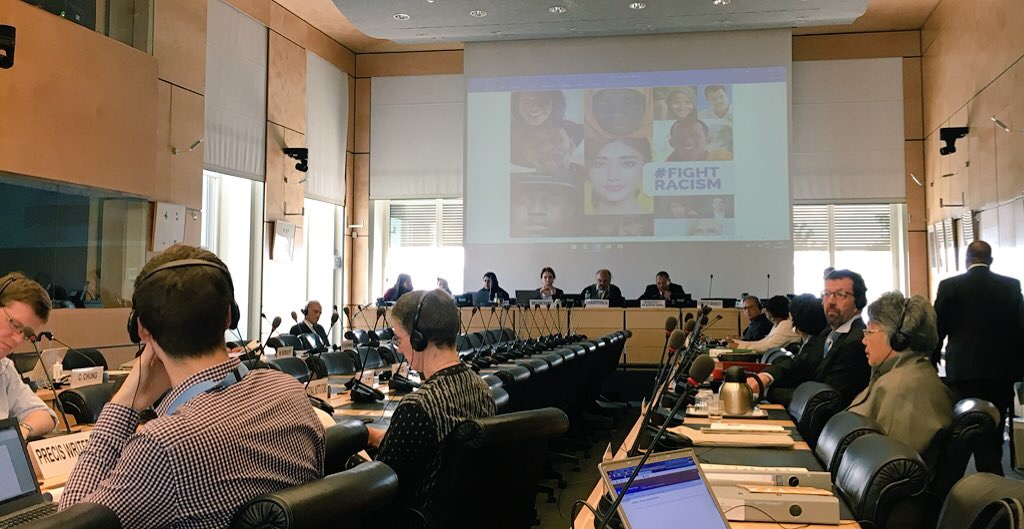International Day of Trans Visibility: Honoring the struggle to protect and promote trans rights in the Americas
Washington, D.C.; March 29, 2021 – On the eve of International Day of Trans Visibility (March 31), the International Institute on Race, Equality and Human Rights (Race and Equality) honors the activists who work tirelessly to protect and promote the human rights of trans people in Latin America and the Caribbean. We also call upon all States to put in place laws and policies that ensure respect, recognition, and full enjoyment of rights for the region’s trans population.
Sadly, for yet another year, the Day of Trans Visibility will be marked by a lack of recognition and protection for trans people in the Americas, resulting in threats, physical and verbal attacks, persecution, exclusion, and the deaths of people with diverse gender expressions and/or identities. According to the international organization Trans Respect vs. Transphobia, of the 350 killings of trans people that were reported worldwide between October 1, 2019 and September 30, 2020, 82% took place in Latin America.
The COVID-19 pandemic worsened the already-vulnerable situation of trans people throughout 2020. Some governments failed to consider trans people’s needs when designing gender-based pandemic response measures, exposing trans citizens to sanctions for supposedly violating these measures. Meanwhile, both police violence and violent criminal attacks against trans people increased during the year, especially violence against trans women sex workers.
Despite this adverse context, however, activists and civil society organizations remain firm in their commitment to fight for trans people’s fundamental rights. Race and Equality applauds the trans community’s efforts throughout the region and is committed to providing support and technical assistance as civil society advocates before regional and international human rights bodies.
To commemorate International Day of Trans Visibility, Race and Equality spoke with activists from around the region about their work and about their visions for a just society. These activists spoke of great challenges, but also of the victories they have won and their dreams for the future.
Recognition and respect
The Brazilian journalist Caê Vasconcelos told us that society needs to learn to see trans men in their full and complex totality. Caê, himself a trans man, said, “we should be able to bring our whole life stories, experiences of life, struggle, love, care, and all the power that our trans bodies have.” He emphasized that a lack of knowledge of trans people’s experiences renders them invisible in Brazilian society. This invisibility manifests, for example, in a total lack of gynecological or pregnancy care for trans men. Making trans people’s needs visible is a vital step to honoring their existence and ensuring their rights as full citizens.
This invisibility also results in transphobia and violence against trans people as Brazil’s cis-heteronormative structures lash out against those who are different. As the National Association of Travestis[1] and Transsexual People (ANTRA) reported in their Dossier on Homicides and Violence against Travestis and Transsexual People in Brazil (2020), some conservative ideologies and political sectors encourage this hatred, leading to Brazil’s status as the country with the most murders of trans people.
In Nicaragua, the human rights activist and former political prisoner Victoria Obando sums up the trans movement’s demands as, “Stop killing us.” Recently, Nicaragua’s LGBT community was horrified by the brutal murder of Anahís “Lala” Contreras, a 22-year-old trans women who was beaten by two men and dragged behind a horse. For Victoria, such a grotesque act reveals the levels of violence and exclusion facing trans people in Nicaragua.
The case of Celia Cruz is indicative of the arbitrary persecution and criminalization that trans Nicaraguans have suffered at the hands of their government throughout the socio-political crisis that began in April 2018. Celia, a trans woman, has been held in a men’s prison since April 21, 2020, where she is serving a 10-year sentence after being convicted of obstruction of justice and kidnapping for ransom.
Tomás Anzola, coordinator of the Trans Support and Action Group (GAAT) in Colombia, told Race and Equality that he wishes “for trans people to be able to construct our own identities and bodily experiences in loving and safe environments, in the company of our support networks.” In Colombia, the COVID-19 pandemic has resulted in increased violence against trans people, with 28 trans people (27 women and 1 man) killed in 2020 and 6 already killed in 2021.
As Colombian society debates the decriminalization of abortion, several trans organizations have spoken out about the need to ensure that reproductive rights extend to trans Colombians, emphasizing that denying such rights to trans people denies their very identities. These organizations are also demanding reforms to the National Police after an attack against a trans woman in Soacha (Cundinamarca department) in which police officers insulted, attacked, and sexually abused her.
Colombia’s trans activists and organizations make clear that Colombia has not yet implemented effective public policies guaranteeing full recognition and enjoyment of trans people’s rights. This failure, they emphasize, leaves trans people highly vulnerable to prejudice and violence.
Living without fear
Isabella Fernández, an activist with the Peruvian organization Féminas, told Race and Equality that above all, she wishes for trans people to be able to grow up in homes free of violence and discrimination. Worldwide, trans people and others with diverse gender expressions and/or identities frequently leave home after being rejected by their families, putting them at risk of violence and other harm.
In Peru, organizations fighting for LGBT rights are working towards a national law on gender identity, seeking to ensure that trans people can have their genders recognized by public and private institutions. Currently, those whose genders do not correspond with their civil registrations or identity documents struggle to access health services, education, jobs, and housing.
The Dominican activist Geisha Collins, part of the organization Trans Siempre Amigas (Trans Always Friends, or TRANSSA) shared with us that trans women must have access to identity documents that reflect their genders, which is why TRANSSA is fighting for a gender identity law in the Dominican Republic. Geisha also works to fulfill trans Dominicans’ right to health services that reflect their needs and for access to education, work, and the justice system without discrimination.
TRANSSA is also leading a national campaign for the General Law on Equality and Non-discrimination, which will put into practice the guarantees of Article 39 of the Dominican Constitution. The draft law includes sexual orientation and gender identity as protected categories, outlawing “the denial of the right to enjoy a gender identity of one’s choosing,” which in turn “implies the right to reassign one’s gender or image on public documents.”
Race and Equality laments the lack of recognition for trans people on the part of States and societies in Latin America and the Caribbean, which in turn leads to violence and human rights violations. We support the demands of trans activists and organizations across the region and call on States to respect and protect all people’s human rights, without regard for their sexual orientation or gender identity and/or expression. We recommend the following steps to governments across the region:
- Approve gender identity laws that allow trans people to exercise their citizenship under the correct gender without obstacles or delay, as called for in Consultative Opinion 24-17 of the Inter-American Court of Human Rights.
- Strengthen programs to train public servants, including the police and judiciary, on gender identity and trans issues.
- Investigate and sanction all acts of violence against trans people, guaranteeing protection and respect to trans people throughout the process.
- Implement public education and awareness-raising campaigns to promote respect for LGBTI people and their rights.
- Create specific public health protocols for attending to trans people and people with diverse gender identities and/or expressions.
- Collect and publish disaggregated data on violence against LGBTI people, using an intersectional approach.
- Sign and ratify the Inter-American Convention against All Forms of Discrimination.
[1] Travesti is a Portuguese term for a person who was assigned male at birth, but who identifies and self-expresses as female, with or without any related medical interventions.





